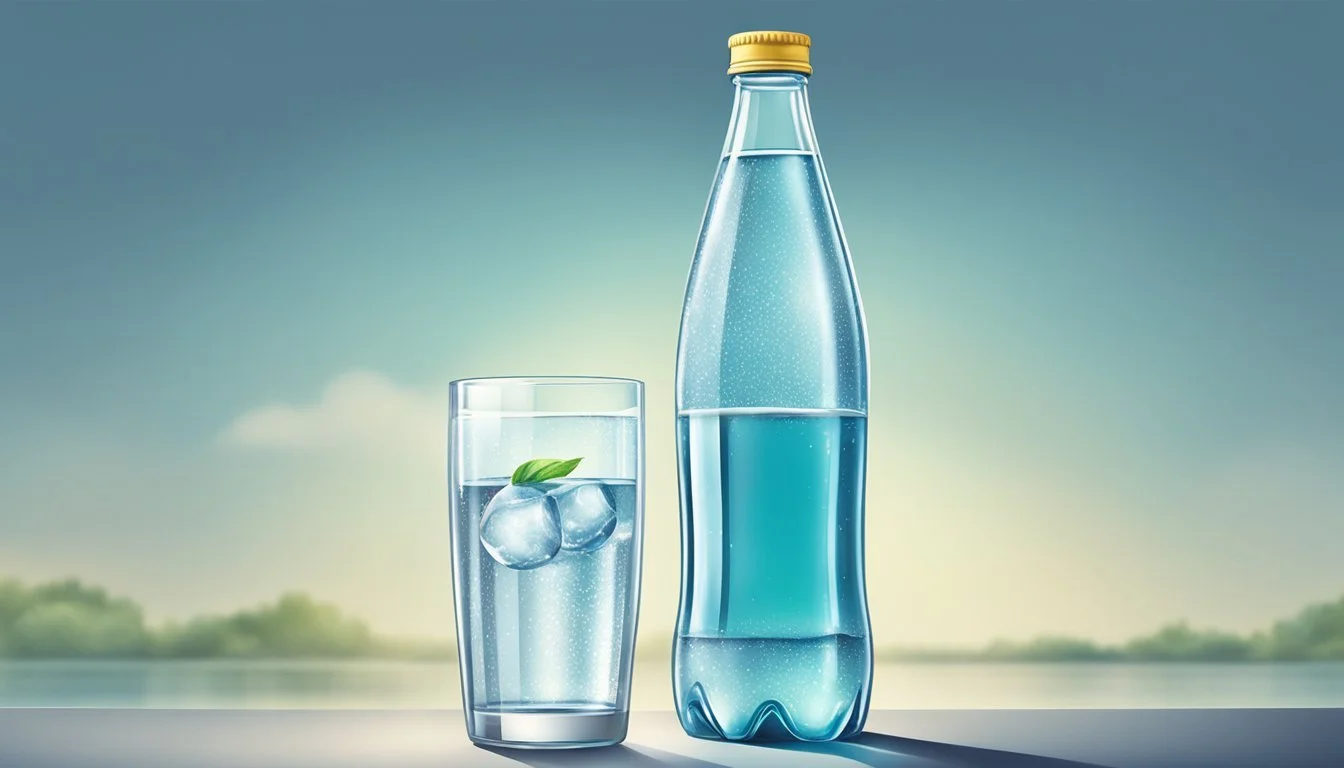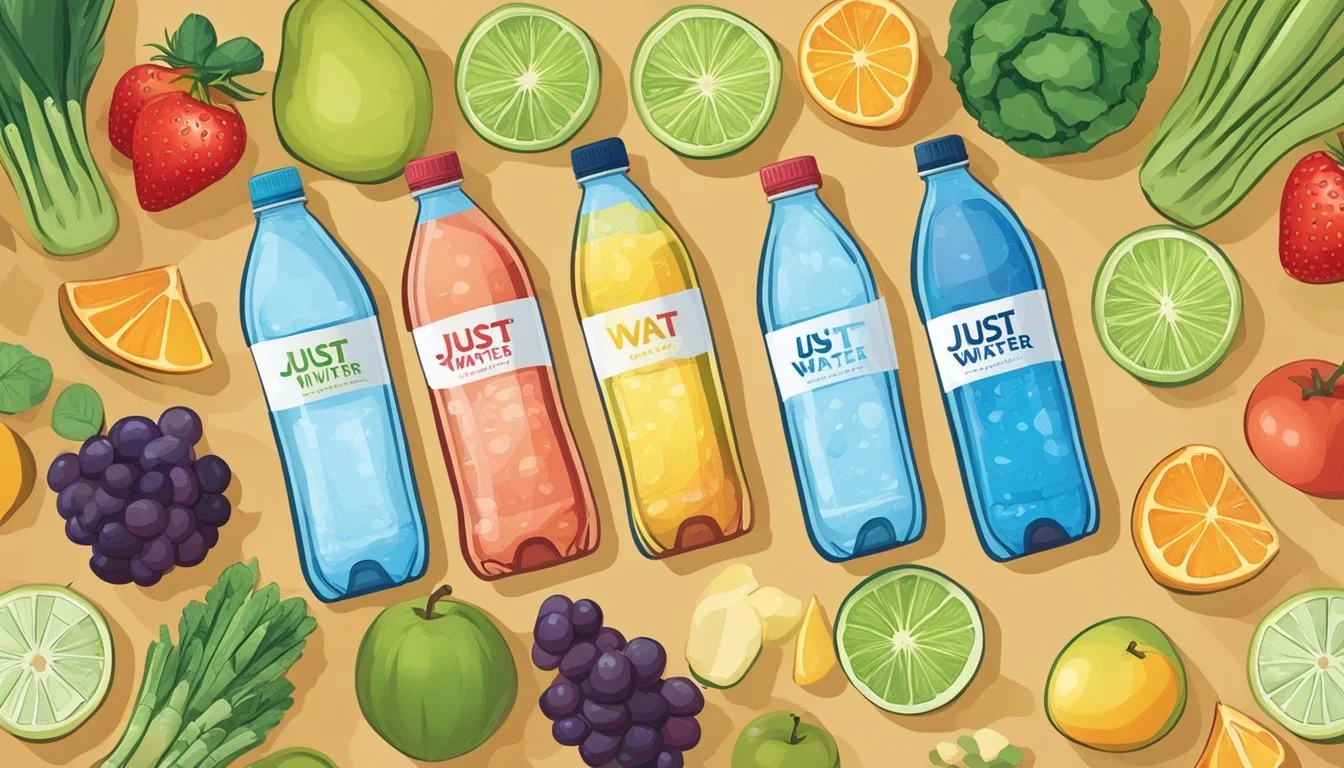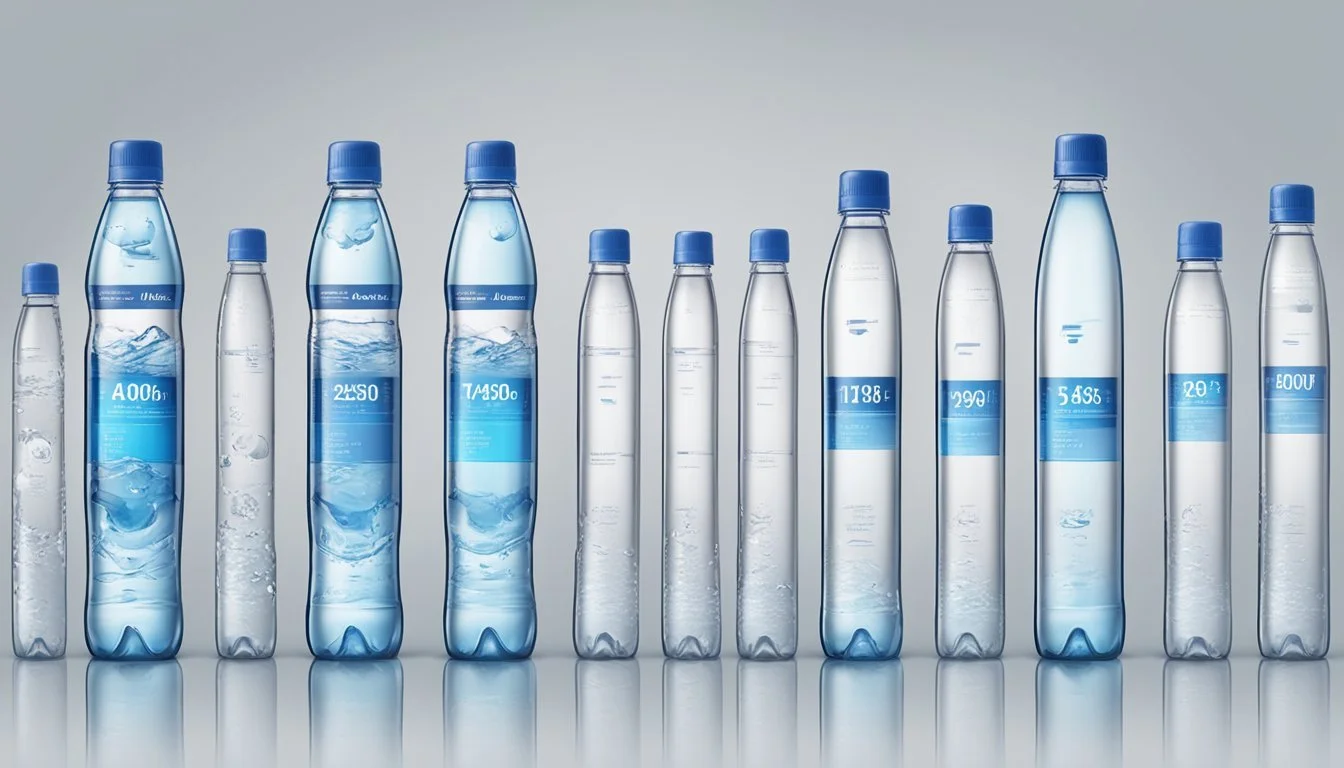Just Water vs. Action
Which Bottled Water is Better for You?
Consumers are often faced with a choice between Just Water and Action bottled water. Both brands promise premium quality, but which one stands out in terms of value? Just Water offers more sustainability with its plant-based packaging and commitment to environmental conservation.
Action bottled water, on the other hand, emphasizes convenience and wide availability. Easily found in stores, it caters to those on the go who prioritize immediate accessibility. Each brand serves different needs and preferences, shaping the decision based on what's most important to the consumer.
For those concerned with eco-friendliness, Just Water might be the better option. Meanwhile, individuals seeking instant access without specific environmental considerations might prefer Action.
Just Water vs. Action Bottled Water Overview
When comparing Just Water and Action Bottled Water, it's essential to consider their brand philosophies and source of water. Each brand takes a unique approach to sustainability and water sourcing.
Brand Philosophies and Commitment
Just Water emphasizes sustainability by using paper-based bottles that are 82% renewable. Their packaging minimizes plastic use, and they focus on using resources responsibly. Just Water collaborates with local communities to create economic opportunities and reduce their carbon footprint.
Action Bottled Water also promotes sustainability, though their focus includes community health and environmental benefits. They use recycled plastic bottles and support several environmental initiatives, including water conservation efforts. Their commitment lies in providing quality water while offsetting environmental impacts.
Source and Origin
Just Water sources its water from a natural spring in Glen Falls, New York. The water is reputed for its purity and constant renewal, making it a sustainable choice. The spring water undergoes minimal processing to maintain its natural mineral content.
Action Bottled Water sources its water from an artesian well located in the Pacific Northwest. This source is known for naturally filtering water through layers of rock, providing clean and mineral-rich water. The extraction method ensures that the water remains untouched until bottling, preserving its natural quality and taste.
Health and Safety Considerations
When choosing between Just Water and Action bottled water, it is crucial to examine aspects such as the quality of the water, regulatory compliance, and the health benefits of hydration. Understanding these elements helps consumers make an informed decision regarding which option aligns best with their health and safety needs.
Water Quality and Contaminants
Water quality and the presence of contaminants are primary health concerns. Both Just Water and Action ensure their products are free of harmful impurities through rigorous testing. Their water sources are regularly analyzed for contaminants such as lead, chlorine, and arsenic.
Just Water often highlights its plant-based packaging and sustainability practices, aiming to combine safety with environmental responsibility. Action, on the other hand, focuses on delivering purified water through multiple filtration stages to ensure high safety standards.
Regulation and Compliance
Water safety is heavily regulated to protect consumers. In the United States, the Environmental Protection Agency (EPA) regulates tap water, while the Food and Drug Administration (FDA) oversees bottled water. Just Water and Action adhere to these regulatory standards, ensuring compliance with safety and quality requirements.
Just Water often provides transparency by publishing its water quality reports, showing compliance with EPA and FDA standards. Whereas, Action emphasizes its adherence to federal guidelines and additional third-party certifications to enhance trust and safety assurances.
Health Benefits of Hydration
Hydration is essential for maintaining various bodily functions, including temperature regulation, joint lubrication, and nutrient transport. Both Just Water and Action provide convenient ways to stay hydrated effectively.
Providing clean, safe water, these brands promote overall health by encouraging adequate daily water intake. Just Water's carton packaging and Action's mineral-enhanced options cater to different consumer preferences, making hydration both accessible and aligned with individual health needs.
Choosing between Just Water and Action will largely depend on personal requirements regarding water quality, regulatory trust, and specific hydration benefits sought. Each brand pledges to deliver safe, healthy drinking water to support consumers' wellness goals.
Environmental Impacts
Analyzing the environmental impacts of Just Water and Action Bottled Water involves examining the bottling process, the use of plastic and its recyclability, and the sustainability of their water sources.
Bottling Process and Carbon Footprint
The bottling process for both Just Water and Action Bottled Water contributes significantly to their overall environmental impact. Just Water claims to use eco-friendly practices, reducing carbon emissions by utilizing plant-based plastic and reusable materials. Action Bottled Water, on the other hand, might not emphasize carbon footprint reduction methods.
Carbon emissions come from the energy used in the manufacturing and transportation stages. Utilizing renewable energy and efficient logistics is crucial in minimizing these emissions. Using plant-based materials in packaging serves as a more sustainable option and reduces reliance on fossil fuels.
Plastic Use and Recyclability
Plastic use and its recyclability are critical factors in evaluating the environmental impact of bottled water. Just Water uses plastic derived from sugar cane, which is considered more environmentally friendly compared to petroleum-based plastics.
Action Bottled Water might primarily use traditional plastics. Recyclability rates significantly impact environmental sustainability. Many plastic bottles end up in landfills despite recyclability claims. The Environmental Protection Agency (EPA) indicates that only about 30% of plastic bottles are recycled in the U.S.
Efforts to increase recyclability include using recycled materials in bottle production and promoting consumer recycling habits.
Water Source Sustainability
Water sourcing practices affect local ecosystems and community resources. Just Water sources its water from a sustainable spring, ensuring a minimal impact on the environment and local water tables. Action Bottled Water's sourcing methods may vary, and sourcing from regions with ample water supplies ensures sustainability.
Over-extraction of water can lead to lowered water tables and ecosystem disruption. Companies must consider the long-term availability of water sources and the impact on surrounding communities. Sustainable practices include balancing extraction with natural replenishment rates.
Effective environmental stewardship involves transparently addressing these issues to the public.
Taste and Variety
When comparing Just Water and Action, it is essential to examine both the flavors available and how they are perceived in taste tests. Each brand offers unique qualities that cater to different preferences.
Flavored Water Options
Just Water’s flavored options include Lemon, Mint, and Berry. These flavors are achieved through natural extracts, creating a refreshing, subtle taste without overwhelming the palate.
Action offers a more extensive flavor lineup, featuring Lime, Grapefruit, and Blueberry. They use natural ingredients as well, and their flavors tend to be more pronounced. This can be a plus for those who prefer a stronger flavor profile.
Blind Taste Tests and Preferences
Blind taste tests are a critical method to objectively compare the water. In such tests, participants often appreciate the clean and pure taste of Just Water, noting its minimalist approach.
Action's waters often score well in blind taste tests too, praised for their robust and distinct flavors. Maurice Kennedy, from The California Aggie, helped highlight this in a study where participants rated Just Water highly for its subtlety and purity, while Action was noted for its flavor assortment.
These taste tests often reveal that personal preference plays a significant role in selecting the preferred brand. Some prefer the understated and clean taste of Just Water, while others lean towards the bolder, more varied flavors of Action.
Cost and Affordability
When comparing Just Water and Action, understanding the cost and accessibility of each brand can help consumers make informed decisions. Both brands offer unique features, but their pricing and availability vary significantly.
Price Comparison
Just Water typically falls on the more affordable end of the bottled water market. The average cost for an individual bottle is around $1.25. Action, on the other hand, is often positioned as a premium brand, with bottles available at higher prices, averaging around $2.00 each.
When considering the cost over time, choosing Just Water could mean significant savings. For example, monthly costs could be roughly $37.50 for Just Water if one bottle is consumed daily, compared to $60 for Action.
Access and Availability
Availability plays a crucial role in consumer choice. Just Water is widely accessible in many grocery stores and can be found in various urban and rural locations. Action, while available, tends to be found more in specialty stores and higher-end retailers, making it less accessible in some regions.
Moreover, Just Water often partners with larger retail chains, ensuring consistent stock and reliable distribution. Action, focusing on a niche market, may not always be as readily available, which can inconvenience those seeking easy access.
Affordability and accessibility are key considerations for consumers. Just Water offers a more budget-friendly and widely available option, whereas Action provides a premium choice with a steeper price.
Consumer Convenience
Consumers often choose bottled water based on packaging convenience and reliability during emergencies. Both of these factors play a critical role in daily and emergency scenarios.
Packaging and Transport
Just Water uses paper-based cartons with a sugarcane-based cap. These cartons are lightweight, reducing the burden of carrying multiple bottles. They are also easier to stack and store, making them more practical for transport.
Action Bottled Water typically uses standard plastic bottles. Although slightly heavier, plastic bottles are more durable, reducing the risk of damage during transport. Their uniform shape also aids in efficient packing, although their environmental impact is more significant compared to paper-based packaging.
Availability in Emergencies
During natural disasters, clean water accessibility becomes crucial. Action Bottled Water has a widespread distribution network, making it more readily available in emergencies. Its plastic bottles are robust, ensuring stability in less than ideal conditions.
Just Water's cartons, while eco-friendly, may not always be stocked in emergency supply centers. However, their lighter weight allows for easier bulk distribution if available. Both products provide convenient solutions, though Action's presence in emergency relief efforts gives it a slight edge in critical situations.
Comparative Analysis
Both Just Water and Action Water have unique market positions and have cultivated significant customer followings through their emphasis on sustainability and quality.
Market Presence and Sales Data
Just Water has established a strong presence in the bottled water market, particularly through its eco-friendly packaging made from paper and a sugarcane-based cap.
Sales data indicates a steady growth in their market share, consistently attracting consumers interested in sustainable products. Moreover, Just Water's focus on reducing plastic use aligns with increasing consumer awareness and demand for environmentally responsible brands.
Action Water, though newer, has aggressively entered the market with competitive pricing and a commitment to sourcing from natural springs. It has quickly gained traction, leveraging strategic partnerships and robust marketing campaigns. Despite fierce competition, Action Water's sales have shown impressive year-on-year growth, especially in urban markets.
Customer Trust and Loyalty
Customer trust in Just Water is largely attributed to its transparent sourcing and commitment to sustainability. Many consumers appreciate their efforts to mitigate plastic waste, which has fostered a loyal customer base. Just Water is frequently highlighted in taste tests for its clean, neutral flavor, further strengthening its reputation.
Action Water has built loyalty through its focus on quality and affordability. Customers often cite the brand's refreshing taste and clarity. Their marketing emphasizes natural purity, appealing to health-conscious consumers. Action Water has cultivated trust by ensuring consistent product quality and leveraging positive word-of-mouth.
Both brands have effectively nurtured strong brand loyalty by aligning with key consumer values such as health, sustainability, and reliability.
More About Just Water
Core Hydration vs Just Water: Which Bottled Water is Better?
Icelandic Glacial vs Just Water: Which Bottled Water is Better?
Just Water vs Aqua Carpatica: Which Bottled Water is Better?
Just Water vs Cascade Mountain: Which Bottled Water is Better?
Just Water vs Crystal Geyser: Which Bottled Water is Better?
Just Water vs Hawaii Volcanic: Which Bottled Water is Better?
Just Water vs Hawaiian Springs: Which Bottled Water is Better?
Just Water vs Kirkland Signature: Which Bottled Water is Better?
Just Water vs Mountain Valley Spring Water: Which Bottled Water is Better?
Just Water vs Nestle Pure Life: Which Bottled Water is Better?
Just Water vs Richard's Rainwater: Which Bottled Water is Better?
Just Water vs San Pellegrino: Which Bottled Water is Better?
Just Water vs Solan de Cabras: Which Bottled Water is Better?
Just Water vs Talking Rain AQA: Which Bottled Water is Better?
Just Water vs Whole Foods 365: Which Bottled Water is Better?
Just Water vs Whole Foods Italian Still Mineral water: Which Bottled Water is Better?




